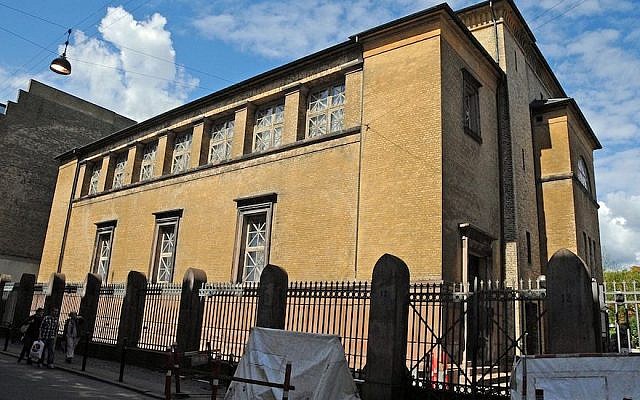Will security at American Jewish institutions now mirror that of Europe, with its police protection, armed guards, panic rooms and sterile zones at synagogues?
It’s a possibility that is being debated more seriously than ever before following the Tree of Life Congregation shooting Saturday in Pittsburgh in which a gunman killed 11 people.
Rabbi Jack Moline, president of the Interfaith Alliance, told The Washington Post that posting armed guards outside synagogues in some places would be “prohibitive” to Jewish communal life itself.
But Gary Sikorski, director of security for the Jewish Federation of Metropolitan Detroit, told the Detroit Jewish News that the idea, suggested by President Donald Trump after the attack, is “not a bad one.”
European security professionals say that even if Sikorski’s approach prevails, it will take at least a decade and hundreds of millions of dollars before US Jewry’s security infrastructure matches the European counterpart.
“The security doctrine you see in Europe is the result of decades of evolution,” said Ophir Revach, director of the European Jewish Congress’ Security and Crisis Center. “It was built on lessons from terrorist attacks in the 1960s and adjusted constantly. It’s pretty comprehensive.”
Even if a critical mass of US Jewish communities decide tomorrow that they want to replicate the European model, Revach said, “Optimistically speaking, it will take at least a decade to achieve.” When it comes to security, he said, “American Jewry is at the beginning of a long journey.”

The Great Synagogue of Copenhagen was the site of a deadly attack in 2015. (Wikimedia Commons via JTA)
In several European countries, synagogues are under constant protection of police or army troops. Most of them have volunteer guards, including armed ones. Many also have a security command room, where trained professionals or volunteers use elaborate video surveillance systems to monitor their premises, often while exchanging information with other Jewish institutions in real-time.
These arrangements regularly prevent violence against congregants.
In 2015, a volunteer guard outside Copenhagen’s main synagogue was shot dead after engaging an armed Islamist who had intended to carry out a shooting attack inside the building, where dozens of people were celebrating a bat mitzvah. Dan Uzan’s intervention allowed police to shoot the assailant, who never made it inside the shul.
A year earlier, a dozen or so volunteer guards staved off dozens of rioters who had intended to storm the Synagogue de la Roquette in Paris as payback for Israel’s actions in Gaza. As 200 worshippers waited inside, the defenders held their ground for 20 minutes amid a vicious street brawl with the attackers until police finally arrived at the scene.
No comments:
Post a Comment